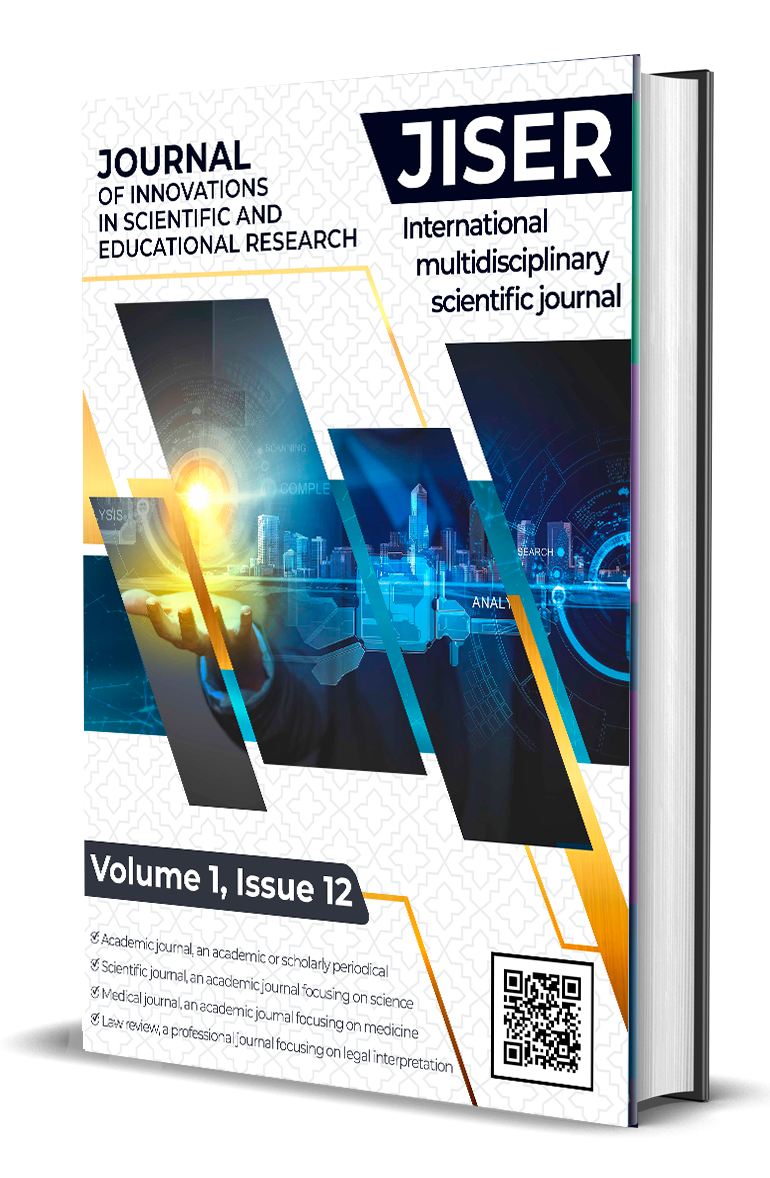MILITARY CONFLICTS AND POLITICAL CHAOS: HOW SUDAN FOUND ITSELF AT THE EPICENTER OF CRISIS
Keywords:
military conflicts, political chaos, coup d'etat, economic collapse, separatist movements, international mediation, humanitarian crisis.Abstract
This paper looks at the complex dynamics of military conflicts and political chaos that have situated Sudan at the heart of this unfolding crisis. Most notably, the focus is on how historical ethnic tensions, political rivalries, and socio-economic factors have been dominant in generating widespread violence and instability. The root of the crisis is the overall struggle for power between President Salva Kiir and former Vice President Riek Machar, whose rivalry has sharpened ethnic divisions, particularly between the Dinka and Nuer communities. This conflict was supported less frequently by an organized uniform national defense force known as the Sudan People's Liberation Army. Failure to integrate warring militias into its ranks has translated to a fragmented military structure, therefore compromising national security and perpetuating violence. It emphasizes that the unaddressed grievances of these two wars, besides the total impunity for wartime atrocities, have inculcated a culture of impunity that perpetuates revenge. For its part, the institutional weaknesses within the SPLA—a nationally united command and ethos especially—have further deepened the crisis. Equally, socio-economic issues like poverty, unemployment, and marginalization of rural communities have also fanned discontent and engendered hostility in this conflict. It clearly identifies the role of different regional and international actors, especially the Intergovernmental Authority on Development, in the mediation of peace talks. It insists upon a holistic approach toward peacebuilding, embracing the political as well as socio-economic causes of conflict. Reforms are to be furthered in governance, accountability, and social cohesion. It is also worth noting that the actual incorporation of peripheral groups—primarily youth and civil society—into the peace process remains a key ingredient toward nurturing reconciliation and a national identity based on overcoming ethnicity-based polarization. This paper thus contributes greatly to ascertaining what avenue might be explored toward finding lasting peace and stability in Sudan by considering historical, political, and socioeconomic contexts of the crisis. The conclusions stress the importance of the root cause approach of such a conflict through structural reforms and inclusive dialogue, with continuous international engagement for laying the ground for sustainable development.
References
1. Harry Verhoeven (2023). Surviving revolution and democratisation: the Sudan armed forces, state fragility and security competition. URL: https://www.cambridge.org/core/journals/journal-of-modern-african-studies/article/surviving-revolution-and-democratisation-the-sud
2. Noreen Mohamed (2023). Shedding Light on Sudan’s Crisis: Decades of Political Turmoil and International Silence. URL: https://harvardpolitics.com/shedding-light-on-sudan/
3. Jim Wells (2024). Sudan’s Civil War Explained. URL: https://www.princetonpoliticalreview.org/international-news/sudans-civil-war-explained
4. World Bank Group (2024). The World Bank in Sudan. URL: https://www.worldbank.org/en/country/sudan/overview
5. (2012). Sudan - African Economic Outlook. URL: https://www.afdb.org/fileadmin/uploads/afdb/Documents/Publications/Sudan%20Full%20PDF%20Country%20Note.pdf
6. Center for Preventive Action (2024). Civil War in Sudan. URL: https://www.cfr.org/global-conflict-tracker/conflict/power-struggle-sudan
7. Madison Minges (2023). How Are Regional and Multilateral Organizations Responding to Sudan’s Crisis? URL: https://www.american.edu/sis/news/20231218-how-are-regional-and-multilateral-organizations-responding-to-sudan-s-crisis.cfm
8. Human Rights Watch (2024). Sudan: One Year of Atrocities Requires New Global Approach. URL: https://www.hrw.org/news/2024/04/12/sudan-one-year-atrocities-requires-new-global-approach




